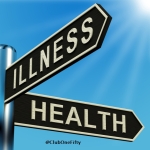 What Do We Mean by ‘Brain Care’?
What Do We Mean by ‘Brain Care’?
Brain Care is defined as any action or non-action performed with the purpose of maintaining a healthy brain.
This includes, but is not limited to, eating brain supporting food, doing brain workouts, e.g. solving puzzles, building on positive relationships, keeping stress away, and more.
Why Focus on Brain Care in Club One Fifty?
Club One Fifty has a mission of helping our members to live a long and healthy life (see our mission). In view of this mission, why do we include brain care?
Without any doubt, our brain ranks as one of the more vital organs in our body. Not only does the brain regulate our emotions and thoughts, but it also has the executive function of the central nervous system, controlling all other systems necessary for our survival. You could say that the brain defines us. 
Scientific evidence today links certain activities to a healthy brain. People who are more mentally active or maintain an active cognitive lifestyle throughout their lives are at lower risk of getting brain diseases such as dementia or Alzheimer’s disease. [1] – [2]
‘Use it or lose it’ – taking care of our brain is very important for a long and healthy life.
But Can We Really Improve the Health and Functioning of the Brain?
Yes, there is something called Plasticity, or Neuroplasticity, which refers to the brain’s ability to change at any age. Brain plasticity is a physical process. Gray matter can shrink or thicken, neural connections can be refined and forged or weakened and severed. Changes in our physical brain manifest as changes in our abilities. Challenging the brain by learning something new is very important.
What Type of Brain Care Do Club One Fifty Promote?
We encourage many types of activities that are supportive of the brain – be it doing physical activity, solving a Sudoku problem or a logic puzzle. Some level of activity is better than no activity. More activity is generally better than less.
Specifically, the types of brain care areas that we promote and present are:
- Brain Workouts. A number of different types of brain workouts are available. There are puzzles, chess problems, math sequences, and more. The workouts range from really easy to seriously treacherous. Click here for an example, and here.
- Brain Food. Our members have access to a collection of foods with brain supporting characteristics.
- Social Activities. Socialising is very important for brain health and is probably one of the most fun ways of keeping the brain healthy. Physical and emotional loneliness can be really devastating – scientists have found that lonely people are twice as likely to get dementia and Alzheimer’s disease later in life. In Club One Fifty we arrange seminars around long life topics and there are also a number of sporting events arranged for our members every year, e.g. the Golf Trophy.
- Sleep. Our brain needs sleep so that the nervous system can work efficiently. During sleep our brain has a chance to shut down the circuits that were busy working during the day and allows them to recharge. Lack of sleep leads to impaired memory skills and poor judgement. In Club One Fifty we help you to sleep better by presenting time-proven sleeping tips.
- Physical Activity. As physical fitness is very important for brain health, our members have access to a special physical training regime based on Calisthenics, or bodyweight resistance training. Members that have opted for the annual membership do also receive an individual Physical Activity Programme. This programme is based on the personal situation taking into account personal goals, age, previous and current physical activity, fitness preferences and other factors.
- News. Scientific discoveries relating to brain health and development are presented on a regular basis. Click here for an example.
References, Sources
- Protecting your brain: ‘Use it or lose it’. Dr. John Krystal. Biological Psychiatry.
- Social Contact, Regular Exercise Important Anti-Aging Strategies. Kirk Erickson. University of Pittsburgh.